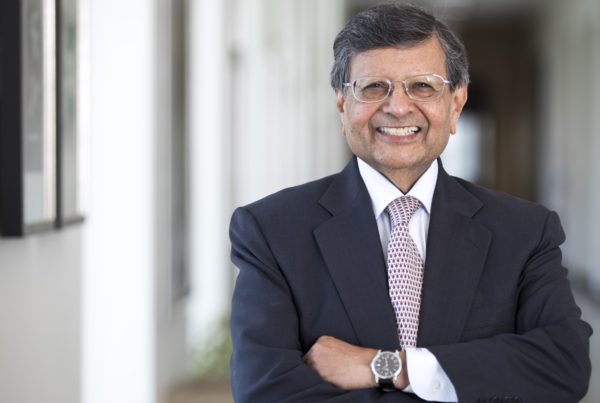Published: Nov 04, 2005 in Knowledge@Emory
The reason eBay lived to see its tenth birthday this past August when so many other dotcoms live on now only as sock puppets and faded t-shirts is that it always had a not-so-secret ingredient: a profitable business model. That’s why many heads shook when the $52 billion online auction house announced in September that it was spending $2.6 billion in cash and stock and maybe up to $4.1 billion to acquire Skype Technologies, an online service whose core mission is facilitating free telephone calls over the Internet.
Executives at the San Jose, Calif. trading giant positioned the purchase of the popular three-year-old startup largely as a way to facilitate online deal-making. “Communications is at the heart of ecommerce and community,” Meg Whitman, president and chief executive officer of eBay, said in a release following the purchase. She said that the new combination of eBay, PayPal—eBay’s payment franchise—and Skype will create “an unparalleled ecommerce and communications engine for buyers and sellers around the world.”
Benn Konsynski, a professor of decision and information analysis at Emory University’s Goizueta Business School and a self-described “major Skype enthusiast,” believes Whitman is right. He says the acquisition offers eBay a powerful suite of commerce services as well as an important new way to integrate the market’s many communities.
Another computer science scholar, Dominic Thomas, a visiting professor of decision and information analysis at Goizueta Business School, also accepts Whitman’s rationale for purchasing the Luxembourg-based startup. He says that a lot of research in customer relationship management has found that people tend to buy more if they have “a shopping friend”— in other words, some kind of personal interaction that adds a social element to a sale.
But why choose Skype, when there are dozens of voice-over-Internet protocol (VoIP) telephone companies out there? And why buy it? One reason may be the quality of the service. Thomas, a frequent Skype user, says that the company has the best sound-compression software available. “I think Skype is clearly the best codec,” he says. “They’re the best quality voice encoding and reliability mechanism.”
Konsynski says what makes Skype unusual is that both the back end and the front end of the service are strong, while most other services are good at one or the other.
Beyond the backend technology, which like all VoIP services digitizes the voice and sends it out over the Internet rather than a dedicated telephone network, Skype has applied a navigation system familiar to users of instant messaging systems into the voice service. “They were very smart at leveraging the infrastructure,” notes Konsynski.
In all, Konsynski says he thinks this is a good deal for eBay. Although some believe that eBay might possibly have built or leased Skype or a similar service, Konsynski notes two factors that probably caught Whitman’s eye: the very rapid growth of the company (Skype is only three-years-old, but already claims to have over 53 million users) and its potential synergies with eBay.
Jagdish Sheth, a professor of marketing and corporate strategist, has another theory about the reasons for the acquisition: he believes the purchase may have less to do with the technology than instant access to all those Skype users.
“I think this is a wonderful acquisition by eBay, contrary to what all the analysts are writing,” observes Sheth. He says Skype will provide eBay with a cost-effective way to reach the world of Skype users, many of whom live in markets that aren’t yet familiar with the eBay brand.
Konsynski notes that much of Skype’s business is outside the United States, according to an eBay investor’s presentation. Only 13% of its users are in North America, 48% of its users are in the European Union, where traditional communications costs are high, and 27% are in Asia. In the U.S., only 1% of eBay users are also Skype users, giving the service great growth potential.
Adding Skype’s 53 million to those 157 million registered eBay users will create a huge market, he says, and gives a population that would equal that of the fifth-largest country in the world its own phone system.
But integrating such a globally-focused service within an American company may present some challenges. Konsynski believes that the biggest potential obstacles eBay faces have to do with keeping U.S. regulators away from the European-based service, and allaying the fears of Skype’s many non-U.S. users about a U.S. company taking the reins. “Expect a strong ‘let Skype be Skype’ campaign,” he warns. (For its part, eBay acknowledged in its investor presentation that the reception of existing users to the deal was one of the key risks of the deal).
While it may be some time before Skype’s impact on eBay is clear, the purchase may already be making investment banks more optimistic about VoIP ventures in general. One case in point: VoIP competitor Vonage’s roster of 1 million customers might seem small next to Skype’s 53 million users (two million paying customers), but a few weeks after eBay’s Skype deal the Edison, NJ., company announced that it now planned to raise $600 million through an initial public offering.
However, even if Vonage, Skype and other VoIP services such as Packet8 and Sunrocket thrive, don’t imagine that the new technology will erase your phone bill completely. While most services offer unlimited use for about half of the charge for an unlimited plan on a conventional line, all VoIP phones require some kind of high-speed connection to the Internet.
Telecommunications analyst Jeff Kagan of Marietta, Ga., says that he expects today’s major cable and telephone providers will end up providing those connections. Kagan says that within six to 18 months, cable and telecommunications companies will be competing head-to-head on many different services, including voice, television, and Internet service. At the same time, a national wireless Internet network may grow up that will deliver high-speed Internet access without any cable at all, but he says the popularity of WiFi will probably depend on the cost.
In any case, don’t expect a quick transition. Although in the future, Kagan predicts that all telephone calls will eventually be carried on VoIP, he expects that the transition will take time. VoIP “will be available, some people will try it, some people will like it; some people will try it and not like it, and it’s going to take 10 to 20 years before everybody switches over,” he says. The telephone infrastructure has been around for 100 years, and it will be difficult for VoIP services to replace all that immediately.
As for Skype, the analyst doesn’t see much future ahead. “I don’t think it’ll be interesting to anybody other than eBay users,” he says.
But there may be at least one other interested subculture beyond eBay users: Konsynski says that Skype is extremely popular with academics. “Academics are notorious moochers, so the first attractive element is it’s free,” he says. Also, the service works well, he adds, making it possible for him to stay in close contact with colleagues all over the world.
Goizueta’s Thomas says he’s able to keep up with a colleague in Singapore thanks to Skype. One feature both fans like: buddy lists that make it possible to see whether the person is online and available—an important feature when the person being called is 12 time zones away. It’s even useful for conference calls, according to Thomas, and can accommodate up to 50 people on one call.
Now that Skype will be a part of eBay, Konsynski is crossing his fingers that Skype will stay in the general communication business. “God, I hope so,” he says. “We academics count on it.”
As profound a change as Skype may herald for the telephone business, it is likely to be a sign of things to come for the Internet as well, Konsynski predicts. Soon, he says, more services will run directly over the Internet Protocol rather than through the World Wide Web. Already, startups such as ThePort in Atlanta, whose offerings include news tickers delivered directly to the PC on the Internet Protocol, and Konfabulator, a unit of Yahoo! that makes what its marketers describe as “widgets”— small virtual gadgets such as stock trackers and timers that live on the desktop—are bypassing the Web in favor of faster modes of transferring data.
And whither the Web? While the Web will still be around, Konsynski says that in the future, an increasing percentage of traffic will be taken up with other kinds of services that operate outside it.
Finally, Skype should be seen as “a wake up call” to Americans, Thomas says, that great technology is now being developed all over the world, not just Silicon Valley. While Americans still tend to think that the best new things are being invented in the U.S., the truth is that there are now exceptional technology companies everywhere. Thomas says, from SAP, the German enterprise software firm, to Nokia, the Finnish cell phone manufacturer, to Infosys, the Indian software company.
The increasingly global nature of technology development can be seen even in the way Skype has grown up. It was developed by Niklas Zennström, a 39-year-old Swedish engineer, and Janus Friis, a 29-year-old Danish entrepreneur; funded in part with California venture capital; and built largely by programmers in Tallinn, Estonia, a medieval city that’s an hour and a half ferry ride away from high-tech Helsinki.
So with technology being developed all over the world these days, where is the next “new new thing” after Skype likely to come from? Sheth suggests keeping an eye on Estonia and the other former Soviet Republics. “The Soviet Union had significant capability in the communications industry,” he notes, most of which was used for military purposes. “With the collapse of the Soviet Union, those engineers and scientists have been free to market anywhere they want,” he says. Although one of the biggest beneficiaries of this change has been Israel, because many Russian Jewish scientists have emigrated, there is still a lot of technical talent back in Russia and the other former Soviet countries.
Nor has that training stopped since the Communists lost power. In spite of a great deal of political and economic upheaval, the countries that used to make up the Eastern bloc are still turning out good computer scientists. At a recent collegiate programming competition, Moscow and St. Petersburg university teams took second and third place after Shanghai. In all, former Eastern bloc universities took 11 of the top 28 spots. (Only one U.S. school, the University of Illinois, placed in the top 20: the school that brought the world the first web browser was locked in a 12-way tie for 17thplace).
Ironically, Sheth sees the countries’ Communist past as one of the reasons behind their current competitive advantage in technical talent. “Communism had some benefits too,” Sheth says, in terms of developing the workforce of the Soviet republics. A policy of gender neutrality, an educational system that brought 100% literacy to the population, and mandatory work and military service, has yielded a workforce of some very well-trained people, he says. “Vietnam is also hot for the same reason,” he adds.





